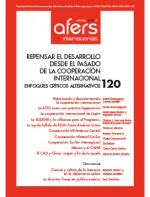Interregional South-South cooperation between Brazil, Chile and Venezuela: interests and the loss of essence

South-South cooperation between Brazil, Chile and Venezuela and developing country partners in Africa, Asia and the Middle East showed great dynamism from 2000 to 2010. This paper questions the specificity of the activities carried out by these three countries. Taking the studies of sociologist Marcel Mauss on donation as a starting point, it observes that these actors see their cooperative action as self-interested, which should come as no surprise from an anthropological perspective. So, although South-South cooperation is symbolised by three ideals (horizontality, reciprocity and equality), the three countries differentiate the content of projects according to the recipient country.
Though nuances exist, generally reciprocity is respected only to a degree with emerging partners and not at all with other developing countries. Such practices contradict the original conception of South-South cooperation.
Key words: South-South cooperation, Brazil, Chile, Venezuela, horizontality, reciprocity, equality
DOI: doi.org/10.24241/rcai.2018.120.3.171
>> The full text articles of this issue are available only in Spanish language